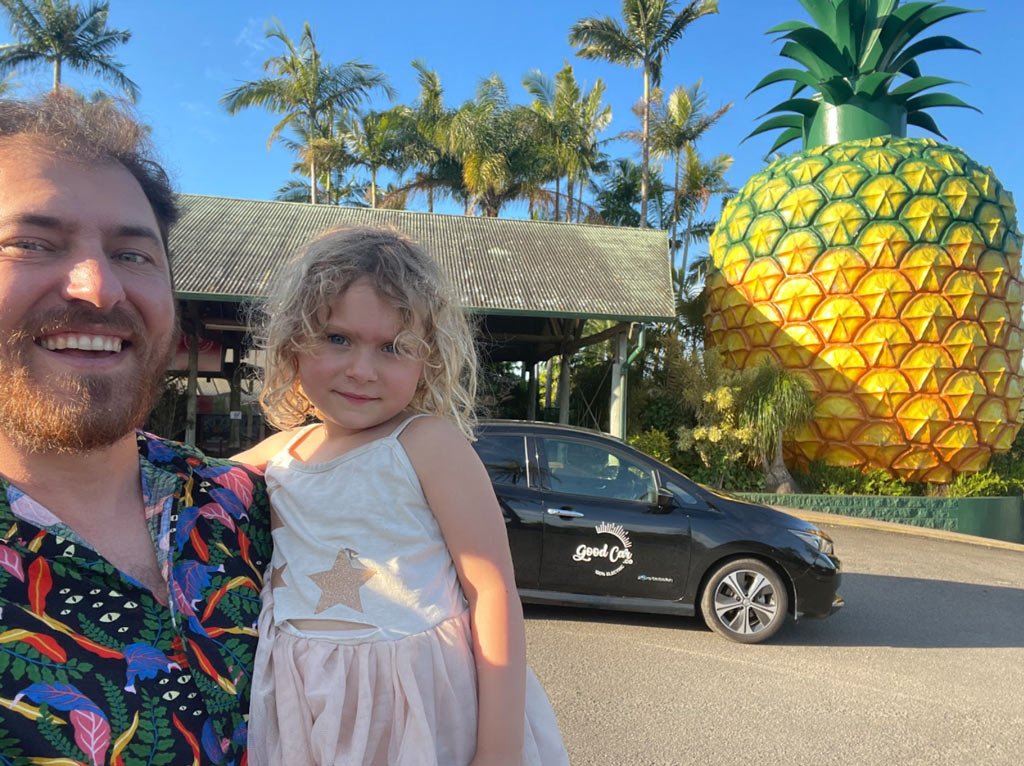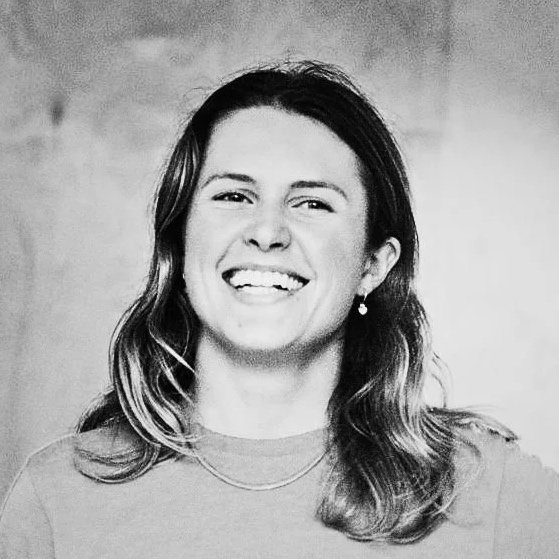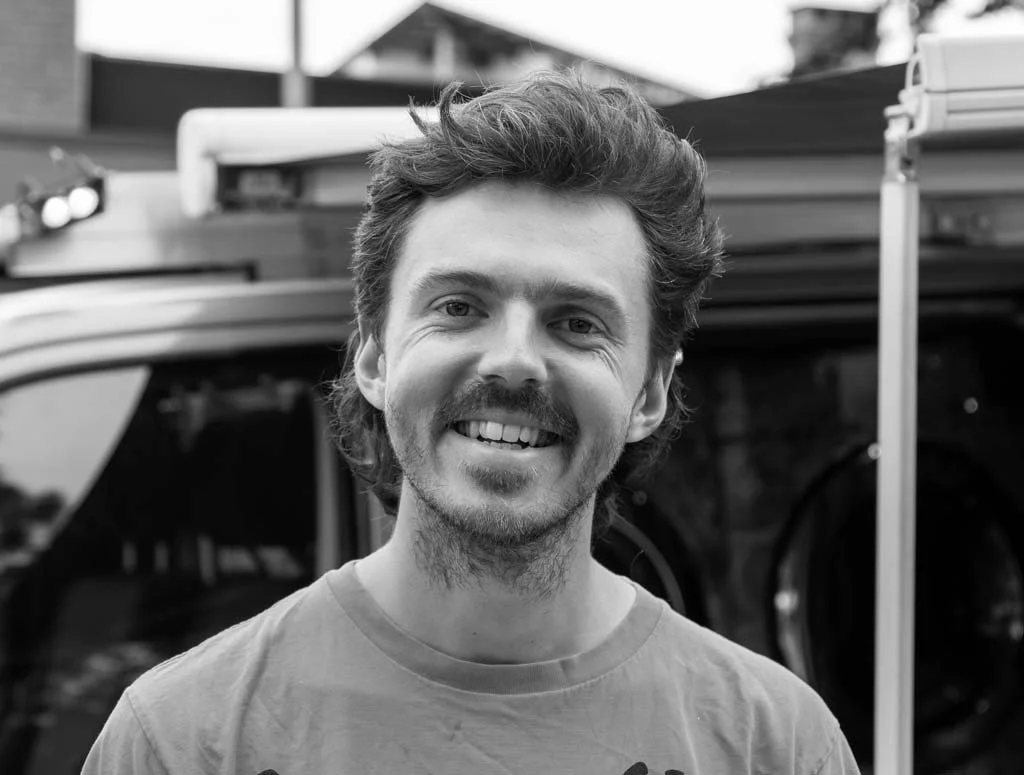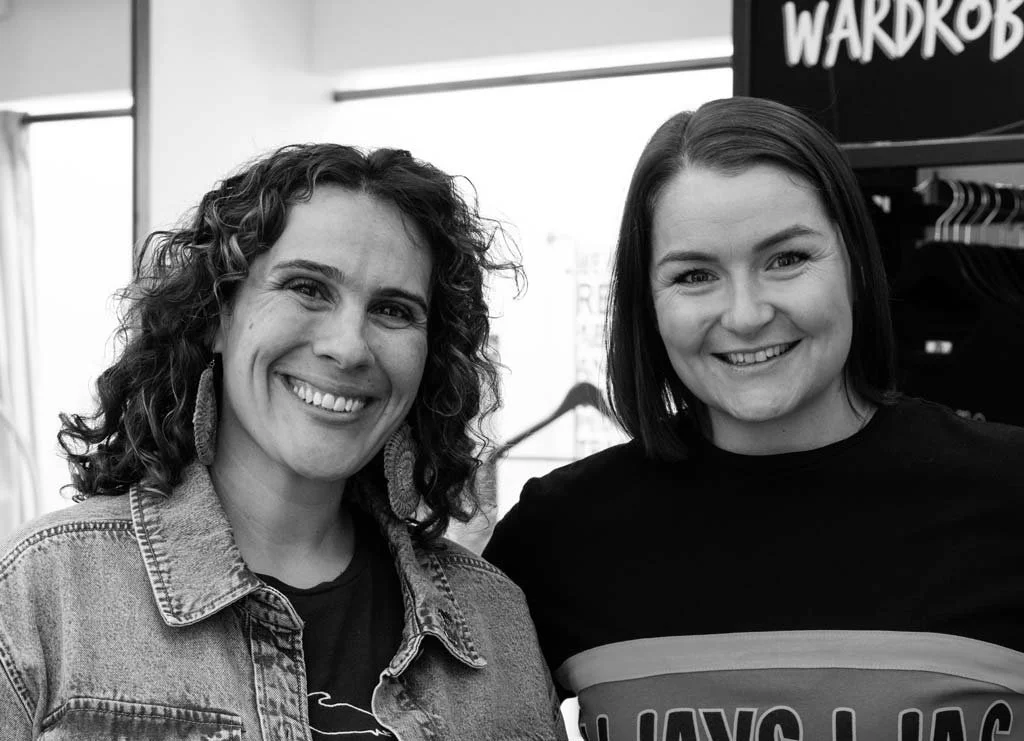Anthony Broese van Groenou On Lessons Learnt During The Transition To A Renewable Energy Future
Anthony Broese van Groenou has worked in community development and renewable energy for over 20 years. He is a co-founder and director of the Good Car Company and a PhD researcher.
His areas of research include socio-technical systems, modelling uptake of Electric Vehicles, and identifying opportunities and barriers for an equitable transition to a low carbon future.
He loves connecting the dots and bringing communities together. Through engagement with individuals and communities, Anthony believes we have the power to transform our energy and transport systems to realise the full potential of electric vehicles on the path to net-zero.
Anthony discusses a future where renewable energy is democratised and how local communities can become ambassadors for electric vehicles.
Highlights from the interview (listen to the podcast for full details)
[Tom Allen] - Could you share a bit about your background and what led to your interest and passion in social enterprise?
[Anthony Broese van Groenou] - I come from a family of environmental scientists. My Mum was a zoologist, and my Dad was a botanist. I really like people, and I did my undergraduate in environmental science and a lot of community development work in Australia and around the world. I've worked in renewables, particularly in community owned renewables, which really opened my eyes to the power that people have to be able to shift and change systems. Business is one of the most impactful ways that we can actually accelerate change.
Where do you see key opportunities for electric vehicles to be assisting in this equitable transition to low emissions transport? What is it that you've learnt in your business journey?
Electric vehicles are phenomenal. They represent so much more than just transport; they're massive batteries on wheels. If you consider a regular electric vehicle, it can power your house for multiple days. When you've got thousands or millions of them, for example, a million EVs on the road means you could displace the equivalent of two coal fire power stations. That's pretty huge, and it's dispatchable power which is owned by people.
There's business models that can go out and reward people for participating in this democratised energy system.
Electric vehicles really hold that key to a hundred percent renewable energy well beyond that storage, which is required when the sun's not shining, and the wind is not blowing.
There so much opportunity here, where do you see this progressing Anthony?
There's so much opportunity if it's properly deployed, that's one of the things. We have incredible renewable resources here in Australia. If we're able to soak up that power, we've got a surplus, which batteries in the vehicles can do. If we're able to coordinate it so that they can respond to when we have frequency control issues and demand response requirements, then we can really have an incredibly smart and efficient grid and save a lot of money. Some of these equity issues have been revealed that the cost for the energy system is borne by all users of the electricity grid.
The grid is an incredible piece of infrastructure, it's something that we absolutely should be utilising to its fullest potential. If you're able to reduce the need to augment the grid, build it up, and shore up those long stringy parts of the network in areas you can back up with storage, then we can have a much more efficient cost-effective grid.
The more we can get smart, the more that we can have business models that engage people and the better it will be for everybody.
What have been some of these biggest challenges when you work towards the bigger goals and possibilities of EVs and new energy systems?
For starters, we all come from working in not-for-profits and we're not from the car auto industry. There's been quite a steep learning curve in that sense. I had to learn about international logistics, a whole host of things that come along with it, and just running a business with multiple other people. We now have a team of six people that are dependent on us, and it's a big thing having that additional responsibility. We are scaling really quickly, and I think for us if we did not have mentorship or the accelerator program that we have been in, we wouldn't be able to deal with the speed and the demands being put on us by the business. It's like a freight train in a way, hopefully an electric freight train, but it's really demanding having a start-up and growing into a scale-up.
Speaking of scaling, in terms of capital raising and all of your team coming from not-for-profit backgrounds, what have you been learning throughout the process?
We're starting to learn that money is actually really important. As funny as that sounds, it's something that we haven't really fully internalised, as being profitable and being able to use those profits to develop the other parts of our business that we need to develop is important. We've already performed battery replacements, and we're looking into building new batteries with a higher energy density so that we can keep that embodied energy of the vehicles on the road for longer, just so that we we're not creating a problem down the track as well.
Once we get to the point of having enough scale and that critical saturation of electric vehicles on the road, we really have to look at the recapture and reuse of those batteries for recycling, and so that's going to take a lot of money.
We'll end up being a really lucrative industry as well, so building our organisation in the right way is hugely important. We're currently pretty much running on debt, so we've got our friends, family and community members. These are people who've been customers in the past and really believe in what we're doing. We're using their money for good and giving them a decent return. It's a really nice model that I think we can really grow to a point until we actually have to do a big equity raise, which we're getting closer to.
What advice or lessons have you learned by going through accelerator programs and setting up Good Car Co. that you could give to other entrepreneurs?
Make the most of all your peers that are there, that's where you learn the most. The mentors and that network available, they're invaluable. These are people that can open up doors and give you insights that you would have otherwise not had.
We see so many people and talk to a lot of people in the startup space that are really protective over their IP. I think there's definitely a space where you’ve got to keep your special secret sauce, but the more you can get your idea out there, the better it actually is.
Ideas are a dime a dozen; it's actually putting them into play that is the big difference.
The more surface area you can give to those ideas, the more all the doors are going to open up for you and the right people are going to show up along the way.
I couldn't agree more. The reality is ideas are cheap, right? Ideas are like sparks and these glitters of light that fly through the sky and then quickly disappear as well. But it's really those entrepreneurs like yourself who are getting out there, doing, testing and validating those assumptions that really push forward.
If you are to take that spark analogy a little bit further, you want to be able to nurture that and have a nice, cool burn to get it going. I think there's the risk of also having an inferno, going too quickly and you really want to be able to manage it. Like you want it as a nice cool burn. If you're managing country or land, you want to have a fire that's going to meander its way through the land and help regenerate the landscape, as opposed to something that's just going to burn the canopy or be left entirely untended to and fizzle out.
Or wreak havoc in our communities! When we talk about different business models and this ‘unicorn mindset’ in terms of valuations and growing from zero to a billion dollars as quickly as possible, it's just so rife in the Australian and global ecosystem. That's where those bushfires can really be ignited, when there is such a strong focus on economics as the pure and only outcome. Social enterprises like Good Car Co. are really different, they are seeking to build community.
I think community is actually the core of our business. Without that, I don't think any of the future iterations of the business were actually going to take place.
Building trust and having those positive experiences with our community makes sure that those people become ambassadors for electric vehicles as well.
Without that, we're not going to have the right transition and being able to engage them for the energy services component later on down the track, or even further, when we come into the realm of autonomous vehicles, which electric vehicles are opening up the pathway to. When we have autonomous vehicles, there's going to get to a point where it's only going to be a couple of players in the entire market that have every single vehicle on the road, and that future isn't one that I particularly want to see. Because then, all of our public assets including the roads will be in a future where they can easily be privatised. I think there's another reality that we can envisage, and it starts now by engaging communities to be able to have community owned fleets and also just having the communities have that voice so we can influence policymakers and the market. This is given that we're really at this tipping point of an electric vehicle massive transformation. We really want to be able to have an influence on the way that rolls out.
You're a PhD candidate, and you're looking at decision-making in energy transitions. What have been some key findings and how might communities best organise themselves so they can accelerate this change to renewables?
How can we create a brighter future for our younger generations?
I think the main thing is capacity, internal capacity in yourself and just being able to align yourself with the future that you want to see and being positive in that. It can be pretty demoralising sometimes when you think about the immensity of work that needs to be done in this climate crisis, and the kind of future our kids might have. We really want to be able to take positive steps and do things that replenish our energy as well, so that capacity side of things on a personal front is crucial. Then in communities as well, being able to have really achievable milestones is a must, because more often than not, there's all these really well-meaning individuals that formed these community groups that end up becoming meetings or talk fests.
It's great to have that social cohesion and a place where people can share ideas but being able to have tangible outcomes as well and provide those tools is important.
It's amazing when we do community bulk buys for these electric vehicles that we can work for the community and the community group that has the clear mandate on taking action on climate change. This is a vehicle, but it is a great tool for people to be able to have a real impact. It's measurable, you can see it in the streets everywhere when there's electric vehicles. It's a visible point of change. You can see your CO2 mitigation right there! I think that power of community and being able to have groundswell action is huge in being able to shift decision-makers opinions as well. But the transition also requires a trusted, reliable source of information. There are so many disinformation campaigns, especially given our ridiculous political environment, so that's a huge problem. Once you've got that established trust in place, being able to find the champions within the community that are actually able to take things forward is crucial. It's everybody's job to be part of it, but not everyone has that capacity. It's really important to just work to what you're actually able to do and not feel guilty about not making more change, because we're all doing our part. Supporting those people who do step up is really important as well.
What inspiring projects or initiatives have you come across recently that you believe are creating really positive social change?
There are so many! Hepburn Wind is one, we've done a community bulk buy with them. They have been pioneering the way for the community on renewable energy. They have two wind farms which are entirely community funded. They're setting up a big solar farm and looking at community storage and getting the whole area and entire region to stay as a net zero energy town. That's phenomenal. The champion at the front of that Taryn Lane is just an incredible human who keeps on working at it. It's really inspiring to have somebody whose heart and their mind are totally in it. Other organisations that we are working with include Enova, they're a community energy retailer in the Northern Rivers area, or they started in the Northern Rivers anyway. They're now operating throughout New South Wales and Southeast Queensland.
That's an energy retailer, a hundred percent renewable, also owned by community members with a not-for-profit arm where they're able to reinvest their profits into more impact. Then there's every other group that we've worked with, South Hobart Sustainable Community, our very first and the world's first electric vehicle bulk buy, which was just a bunch of concerned community members who thought, “this is possible, let's just do it.” The Zero Emission Group in Australia are amazing at pushing policy and decision-makers while giving tools to communities. Whirl; they're a startup in Queensland that are helping to socialise electric vehicles in a huge way. They orchestrate and offer test drives all around the place by real people and have this peer effect of change.
I've got to say it's a pleasure for us to be working with Alina Dini of Whirl right now as a part of our Elevate+ Program. They’re doing great work.
Absolutely!
Relectrify, they take second-hand Nissan LEAF modules and turn them into stationary community energy storage, so even after those products first life, they have a second life of 12 to 15 years. There are so many incredible things that startups like Vyro are doing around financing and providing calculators for clear ways to be able to understand that financial transition for dumped electric vehicles. The list goes on, there's so many incredible companies out there. Another Queensland company Tritium, they're the world's best electric vehicle fast charger. They have thousands deployed across Europe, thousands in California. They are all over the world and really opening up Australia to electric vehicle travel. Other financing organisations like Brighte and Plenti offer finance for solar batteries and home energy improvements, and now they are looking at electric vehicles as part of that whole package as well. It makes perfect sense.
The key is I think we're in this space, but we don't need to be competitive. We just need to make this transition happen and collaborate as much as possible.
To finish off, tell us about some books or other resources that you recommend to our listeners?
I have a lot on my plate at the moment. I've got a young family, PhD and the business, so I get distractions aplenty, and there are so many awesome things happening all the time. I've really got to keep focused and work on that. But there's a book that I've been enjoying that has practical frameworks called Indistractable. It's by Nir Eyal, and it's cool to be able to consider all these different facets of your life, which you can start to segment one at a time and look at what is causing distractions in your life. The one thing that I love the most about the book is you really have to structure your life and plan it to be able to have time to be lazy, you have to work hard to be lazy! This means that I don't want to be lazy, but I just really want quality time with my family and friends where I'm not checking in on work. I work all the time and it's a great recipe for burnout. I've also been reading Let My People Go Surfing, and I like how preparing is a radical act, and all those lessons that are tied into it of looking at your supply chain and ways that you can do good are as well. You can source the right products; you can look after your customers, and you can still make a profit.
I think every business should be solving something in our life. There's no reason why it cannot be sustainable and still make a profit.
If it's not, then you really need to look at what the business actually is.
Initiatives, resources and people mentioned on the podcast
Recommended books
Indistractable: How to Control Your Attention and Choose Your Life by Nir Eyal
Let My People Go Surfing by Yvon Chouiard









